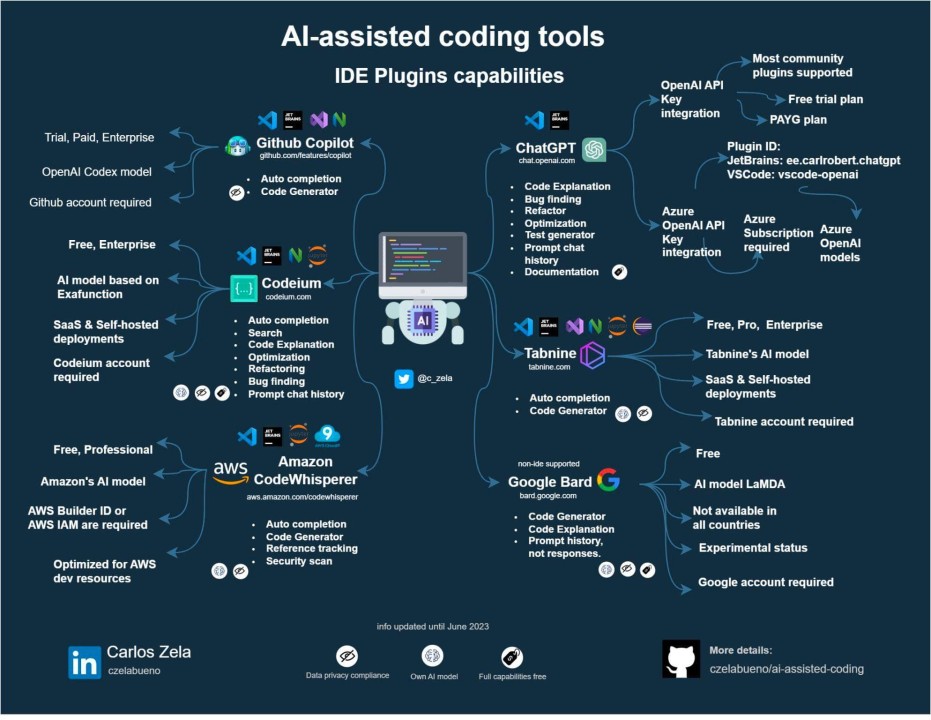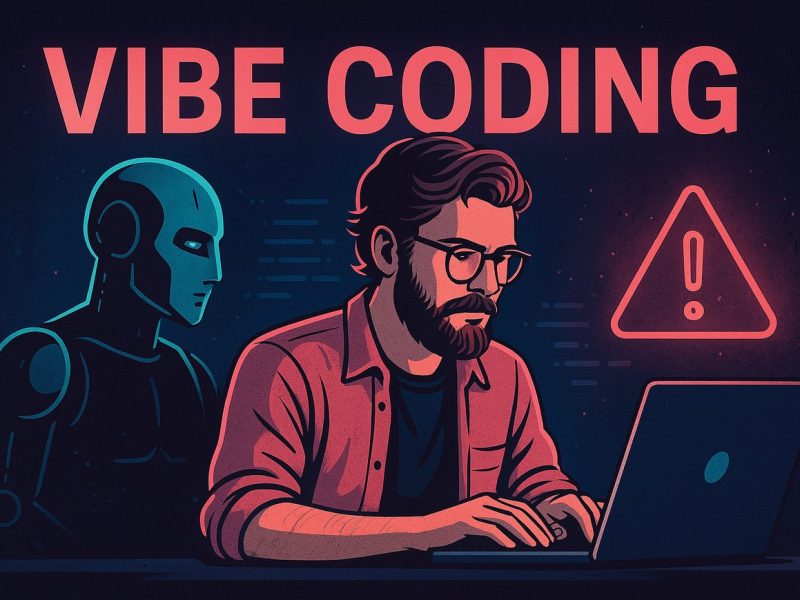Revolutionizing Software Development
The rise of generative AI has ignited a paradigm shift in software engineering. By 2025, 80% of developers will use AI coding tools daily (Gartner, 2023), transforming how we design, write, and maintain software. These tools aren’t just autocomplete on steroids—they’re collaborative partners that augment human creativity with machine-scale pattern recognition.
1. How AI Coding Assistants Work: Beyond Syntax Prediction
Modern tools like OpenAI Codex and Amazon’s CodeWhisperer model leverage transformer architectures trained on billions of lines of public code (GitHub, Stack Overflow, etc.). Unlike static linters, they:
Understand context: Analyze entire codebases to suggest API implementations
Infer intent: Convert natural language prompts (e.g., “Sort users by login date”) into functional code
Cross-reference: Link suggestions to open-source snippets (as in CodeWhisperer’s reference tracking)
Research shows these models reduce boilerplate coding time by 35–55% (Microsoft Research, 2022), freeing developers for architectural innovation.
2. Tool Deep Dive: Capabilities Beyond Autocomplete
A. GitHub Copilot (https://github.com/features/copilot)
Strengths: Seamless VS Code/IntelliJ integration, real-time function generation
Use Case: Rapid prototyping in Python/JS
Limitation: Requires GitHub login; limited customization
B. Codeium (https://codeium.com)
Unique Features:
Self-hosted deployment for enterprise security
Prompt chat history for audit trails
Code explanation/refactoring engine
Ideal for: Financial/government compliance workflows
C. Amazon CodeWhisperer (https://aws.amazon.com/codewhisperer)
AWS Integration: Optimized for Lambda, CDK, and DynamoDB
Security: Built-in vulnerability scanning (CWE Top 25)
Reference Tracking: Flags license compatibility issues
D. ChatGPT for Coding (https://openai.com/blog/chatgpt)
Best For:
Legacy code documentation
Generating test suites
Explaining complex algorithms (e.g., convolutional neural networks)
3. IDE Integration Battlefield
| Plugin | IDE Support | Key Requirement | Deployment Model |
|---|---|---|---|
| Tabnine | VSCode, JetBrains | Tabnine account | SaaS/Self-hosted |
| Codeium | VS Code, PyCharm | Codeium account | Cloud/On-prem |
| JetBrains AI Assistant | IntelliJ IDEs | OpenAI/Azure API Key | Cloud |
Pro Tip: Use Azure OpenAI Service (https://azure.microsoft.com/en-us/products/ai-services/openai-service) for HIPAA-compliant deployments with GPT-4 Turbo.
4. Beyond Generation: Transformative Workflows
A. Refactoring at Scale
Example: Convert callback hell to async/await with Codeium’s structural analysis
Framework Pairing: Use with SonarQube (https://www.sonarsource.com) for technical debt quantification
B. AI-Powered Debugging
Bard + Stack Overflow: Google Bard cross-references error messages with SO solutions
ChatGPT Exception Analysis: Paste stack traces for root-cause diagnosis
C. Documentation Automation
Tools like Swimm (https://swimm.io) + ChatGPT generate docs synced with code changes
5. Critical Challenges & Mitigations
| Risk | Solution |
|---|---|
| License violations | Enable CodeWhisperer’s reference tracking |
| Code quality decay | Pair with linters (ESLint, Pylint) |
| Security vulnerabilities | Integrate Snyk (https://snyk.io) scans |
| Over-reliance | Mandatory code reviews via GitHub Copilot Labs |
Ethical Note: Always audit AI-generated code for bias (e.g., facial recognition algorithms).
6. The Future: Projectional Editors & AI-First IDEs
Emerging trends to watch:
Project IDX (https://idx.dev): Google’s cloud-based IDE with Gemini integration
Meta’s Aroma: AI for code similarity detection at Facebook scale
Diffblue Cover: Autonomous unit test writing (https://www.diffblue.com)
7. Strategic Adoption Roadmap
Start Small: Implement GitHub Copilot for individual developers
Scale Securely: Deploy Codeium Enterprise for on-prem control
Integrate: Connect CodeWhisperer to AWS CodePipeline
Govern: Create AI coding standards with OWASP guidelines (https://owasp.org)
“AI won’t replace developers—but developers using AI will replace those who don’t.”
– Adapted from Harvard Business Review, 2024
Final Recommendations
For Startups: GitHub Copilot (cost-effective)
Enterprises: Codeium + Snyk (security/compliance)
AWS Shops: CodeWhisperer (native integration)
Research Teams: ChatGPT + LangChain (https://python.langchain.com)
The Bottom Line: AI-assisted coding elevates developers from syntax mechanics to solution architects. By offloading repetitive tasks, we unlock capacity for truly transformative innovation—the kind that reshapes industries.
References & Resources
Image: Comparative infographic showing code completion accuracy (%) across Copilot (72%), Codeium (68%), CodeWhisperer (65%), and Tabnine (63%) based on Stanford HELM benchmarks.


